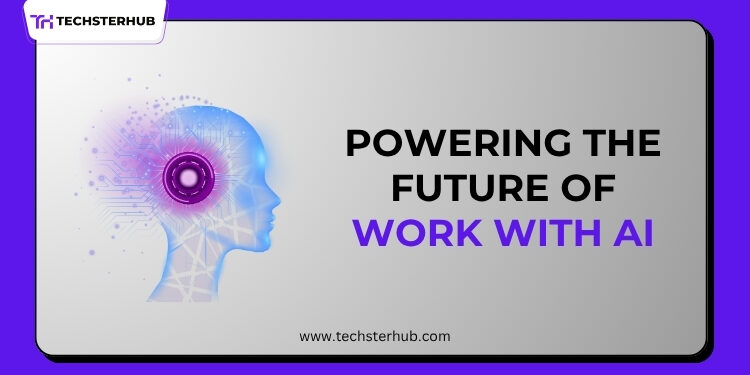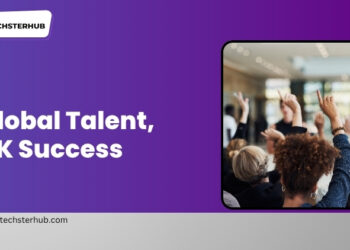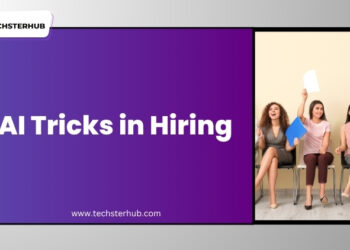Introduction
Artificial intelligence has already brought about a major workplace revolution across sectors. From automating tasks that are repetitive in nature to improving choices from data, AI is so embedded into the modern business operations. But with a new category of AI – Agentic AI – the workplace is being transformed in new ways. Unlike traditional AI systems, agentic AI is autonomous, goal-oriented, decision-making and acting with little involvement from humans.
The emergence of Agentic AI is not a future event – it is happening today. Companies are already seeing the repercussions on the roles, skills and a structuring of the organisation. Most importantly, for leaders and HR professionals, contextualizing agentic AI and positioning the workforce will be important for staying competitive and for innovation.
This article delves into the impact of agentic AI on human resources, its strategic potential, the risks associated with its arrival and practical ways for staff to prepare for the shift to a workforce that is driven by autonomous AI.
What is Agentic AI?
Agentic AI refers to artificial intelligence systems that have the ability to behaviour autonomously and for the achievement of a goal. Unlike the traditional form of AI where tasks are performed only when asked to do them, the agentic AI can:
- Identify objectives based on high-level organisational goals
- Make decisions and take actions independently
- Learn from outcomes and adjust strategies dynamically
Examples of Agentic AI in Action:
- Autonomous financial trading algorithms that adjust portfolios in real-time
- AI project management assistants that allocate resources without direct supervision
- AI-driven supply chain optimisation platforms that balance inventory, production, and logistics autonomously
The primary property of agentic AI is its autonomy – employees and managers no longer need to manage all the activities done, which fundamentally alters the manner in which work is structured and performed.
How Agentic AI is Changing Business Roles
1. Automating Complex Tasks
Where traditional AI is able to automate simpler tasks, agentic AI can accomplish complex processes from start to finish. For example, marketing platforms powered by agentic AI can help to autonomously plan marketing campaigns, optimise marketing budgets, personalise content and analyse positive or negative ROI, freeing up employees from operational oversight.
2. Augmenting Decision-Making
Agentic AI extracts patterns from the large datasets by detecting patterns that humans cannot see and turn them into actionable information. In sectors such as finance, healthcare and logistics, these AI systems can determine recommendations for greater accuracy levels, faster speed, and overall enhancement in decisions.
3. Redefining Human Roles
As machine intelligence (AI) takes on an increasing share of operational tasks, human roles shift to the following:
- Strategic decision-making
- AI oversight and governance
- Creative problem-solving and innovation
Employees will have to concentrate their efforts into understanding what AI provides, making sure that they do not break the ethical boundaries while also needing to apply their uniquely human judgment to areas where machines cannot replicate human intuition and experience.
Opportunities for Organisations
Increased Productivity and Efficiency
Agentic AI can perform the tasks with greater speed, accuracy, and nonstop without getting fatigued. Employee’s role is liberated to focus on projects of higher added value, i.e., strategy, innovation and relationship management.
Establishing an Evidence-Based Basis for Decision Making
Autonomous AIs are used for predictive analytics, scenario modelling, and constant performance monitoring. Humans can use these insights to make more informed strategic decisions.
Innovation, Business Development, and New Career Pathways
Agentic AI leads to the creation of new AI oversight, strategy, and integration positions and divisions. Skills in AI ethics issues, in terms of human interaction with AI systems, and in the management of autonomous systems, will be in high demand for employees.
Challenges Of Agentic A.I Adoption
Ethical and Compliance Issues
Agentic AI is able to make autonomous choices, conjointly with responsibilities for accountability/predicament of rite. Organisations must ensure decisions are made in accordance with regulatory standards and corporate ethics.
Potential Job Displacement
While AI is an augmentation of human work, some jobs may become superfluous. Proactive reskilling is a must to maintain employee retention and to re-deploy employees effectively.
Security and Privacy Risks
Autonomous AI needs access to sensitive data, which means it begins with strong cybersecurity and data governance practices.
Training the Employee Workforce for Agentic AI
Conduct a Skills Audit
Assess current capabilities and attribute agentic AI most affected by roles Focus on skills such as:
- Data literacy and analytics
- AI oversight and governance
- Human-AI collaboration
- Ethical decision-making
Formalised Reskilling and Upskilling Programmes
Offer tiered training programs:
- Online AI and data courses
- Hands-on AI labs and simulations
- Mentorship from AI experts
- Cross-functional projects integrating AI tools
Foster an AI-Ready Culture
Support a culture of continual learning and experimentation; Empower them – do not restrict employees to tools, make sure employees interact with AI tools, are free to share information and contribute to innovation programs. Support from leadership is important to build a level of trust and openness.
Leadership and Governance Strategies
Strong Leadership is key to responsible AI integration:
- Set clear objectives for AI deployment and human oversight
- Establish accountability frameworks for autonomous decisions
- Communicate openly about AI’s role in organisational strategy
- Provide support for reskilling initiatives to reduce uncertainty
Agentic AI: A governance framework for ethical, safe, and effective AI adoption.
Real-World Applications
Finance: AI systems are used for portfolio allocation, trading, and risk analysis, providing faster and more accurate results than manual techniques.
Manufacturing: Agentic AI solutions enable optimized production schedules, minimal waste, and efficient supply chain management without unnecessary human interference.
Marketing & Sales: Employees no longer need to focus on creating and deploying campaigns – AI-driven platforms will automatically design, deploy, and optimise campaigns, freeing up employees for strategic, brand management, and customer engagement efforts.
Ethical Considerations
- Transparency: Ensure employees understand how agentic AI makes decisions.
- Accountability: Define clear responsibility for AI outcomes.
- Bias Mitigation: Regularly audit AI outputs to prevent discrimination.
- Human Oversight: Maintain a balance between AI autonomy and human judgment.
Future Outlook
Agentic AI will become an inseparable part of business operations. For companies that prepare their workforce today will reap the benefits in efficiency, innovation and competitive edge. As AI systems become integrated into society, employees will gradually work together with them, there will be a large need for workers with a combination of technical knowledge, ethical knowledge, and strategic ability. Organisations who choose to ignore workforce preparation risk falling behind in an environment that is changing rapidly.
Conclusion
Agentic AI is already transforming the workforce by automating complex tasks, enhancing human decision-making, and redefining roles. While it poses ethical, security and workforce challenges, organisations that adopt ethical and security measures for Artificial intelligence workforce development strategies can open doors, like never before.
By conducting a skills gap assessment, instituting structured reskilling initiatives, building a nurturing culture of AI readiness, and establishing robust governance, companies can ensure employees are well-prepared to flourish in tandem with agentic AI. The future of the workforce is artificial, and it’s better to be prepared than to be caught off guard if you’re going to keep up, stay relevant, and stay ahead.











